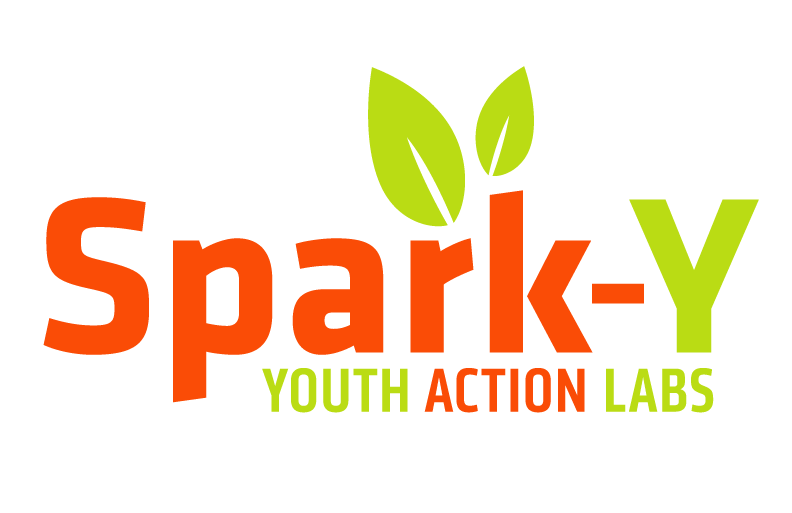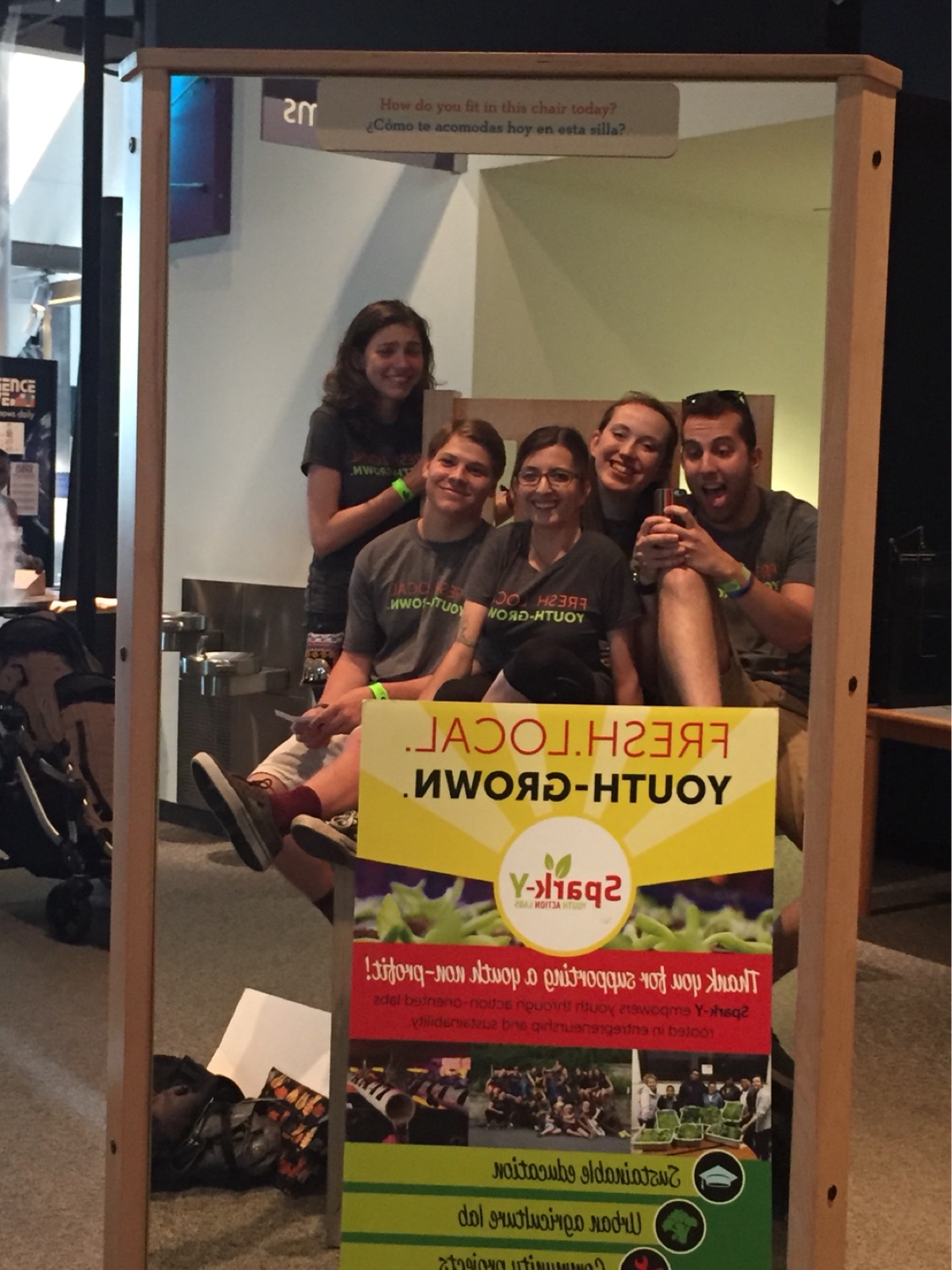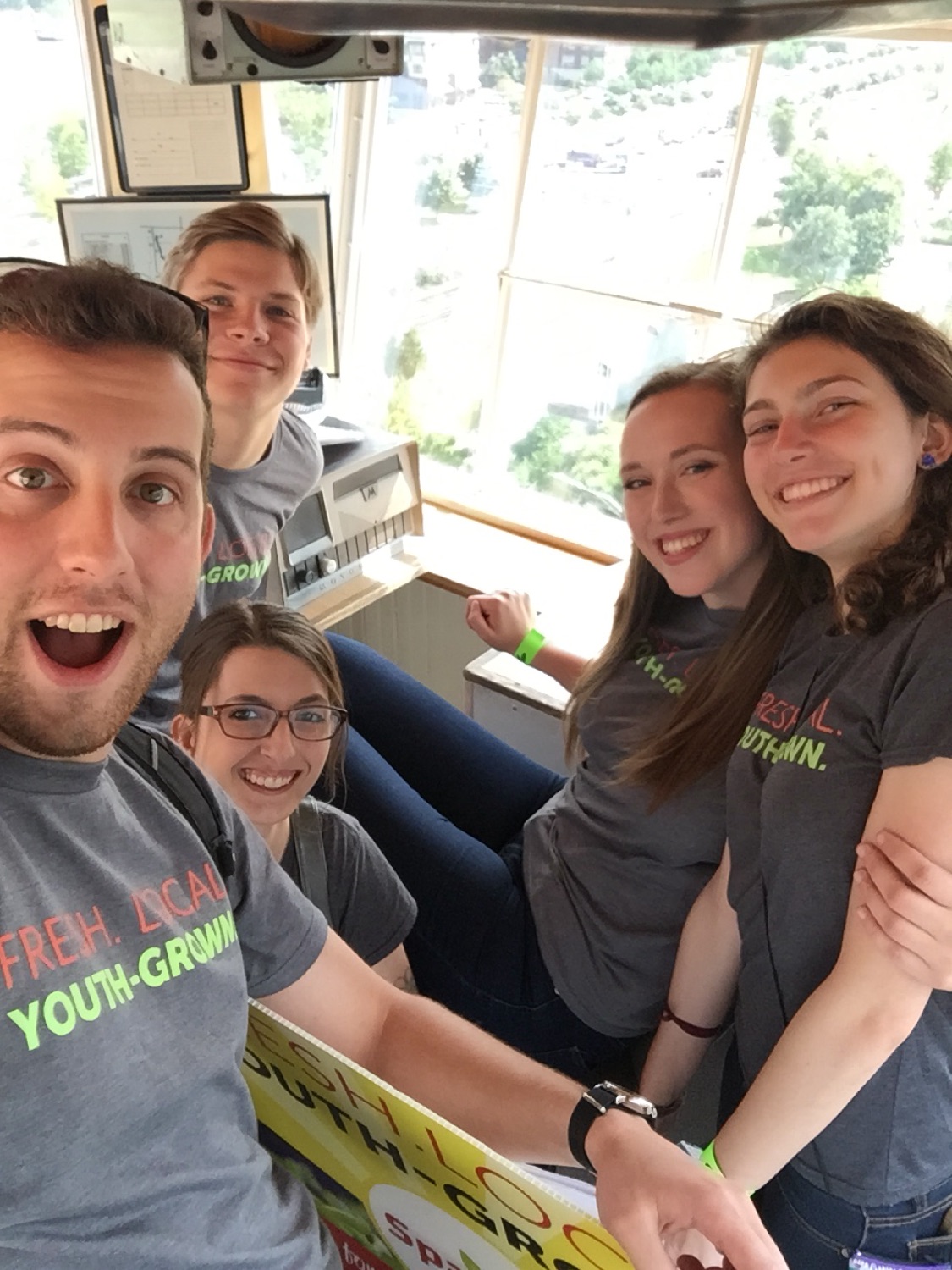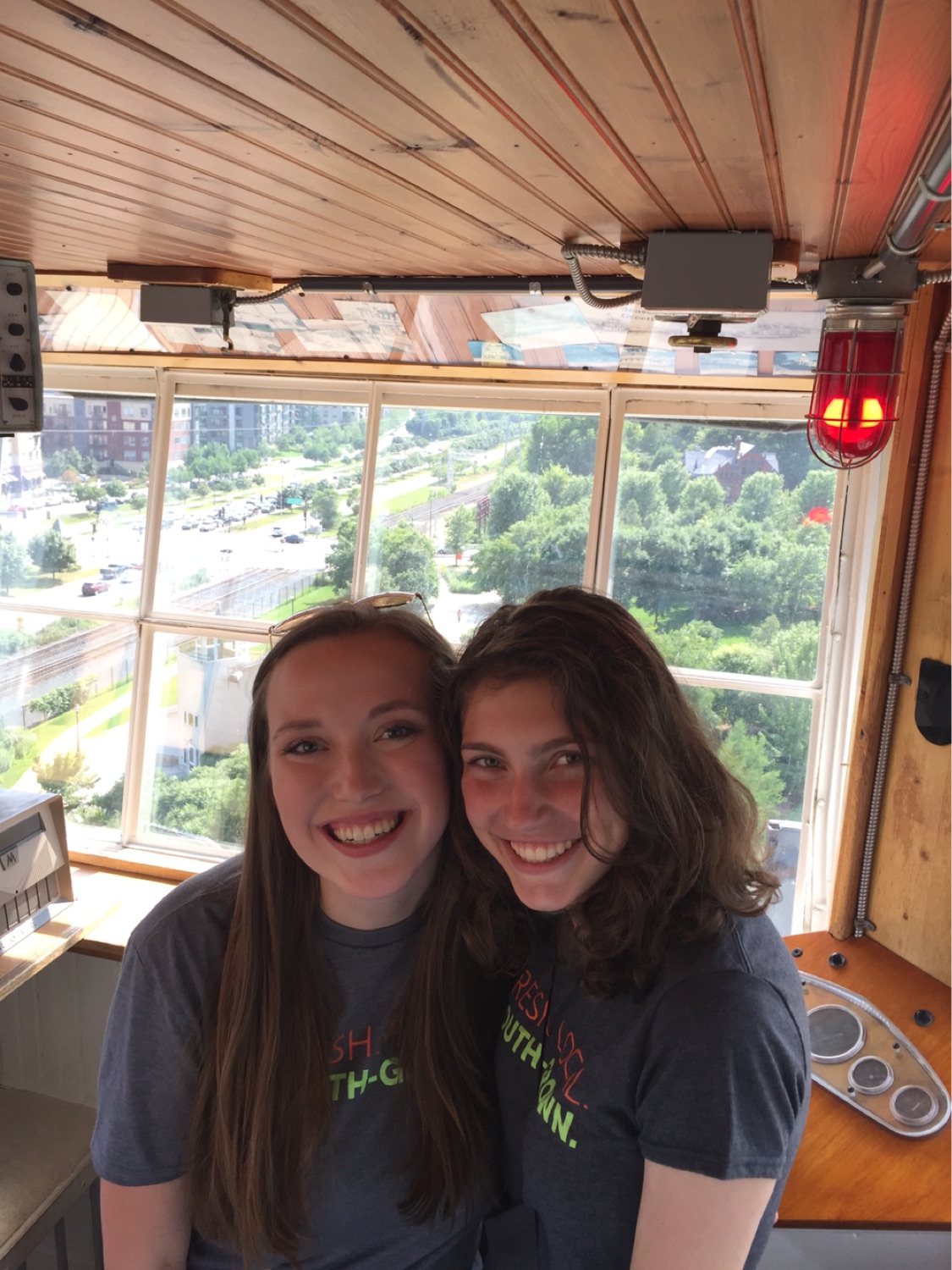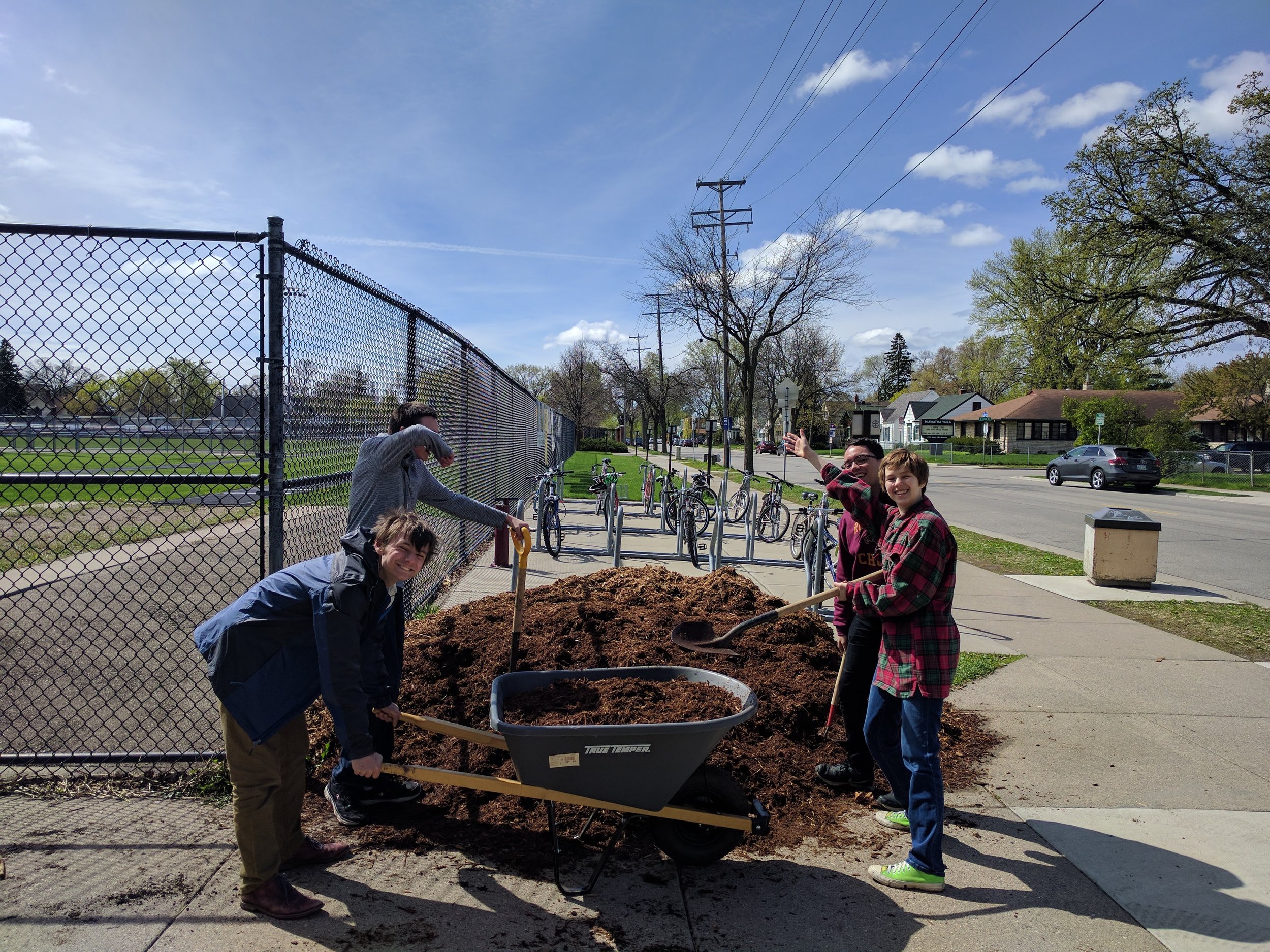This week we continue our Annual Summer Internship expose
with the Edison High School Aquaponics team update, written by:
Kristen Chalmers, Freya Hatch-Surisook, Gavin Long, Nicholas Jacobs, and Zaki Abdi
This week we had tons of fun going around the Twin Cities learning about jobs in sustainability! We met with people from Pollinate MN, Growing Lots, Gandhi Mahal, Lube Tech and several more. We learned about how we can be sustainable and make a change from home, right here in the Twin Cities.
For our project, we are maintaining and repairing the aquaponics system and garden at Edison High School. The Edison project site has an enormous aquaponics system that Spark-Y built. It spans about forty feet and has nine separate grow beds. Currently we have approximately eighty fish in the system and would possibly like to add more! In the garden area, we have tomatoes that are almost ready for harvesting, basil that grows like a weed, and eggplant and squash that are sprouting up everywhere. The greenhouse was just planted last week and several sprouts are popping up there as well.
Edison High School has become an integral leader of the sustainability movement in Minneapolis. After installing a stormwater treatment system that collects a total of 1.5 million gallons of water a year, a community garden, greenhouse, and Minnesota’s largest school-based aquaponics system, Edison has become the greenest campus in the state. This week, we are getting ready to put in a new pond liner and are outfitting the system with foam to make sure there are no leaks. We definitely turned heads driving out of the Home Depot parking lot with two foam boards tied to the roof of Dylan’s Prius! We are also planting and maintaining the greenhouse by the Edison football field, which collects rainwater from the football field and stores it for future use. We are working hard to bring out the best in the greenest high school campus in Minnesota!
Edison Aquaponics System
